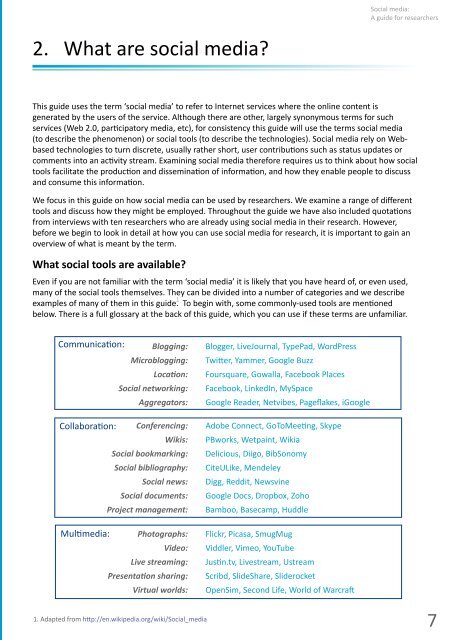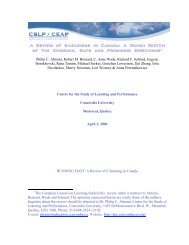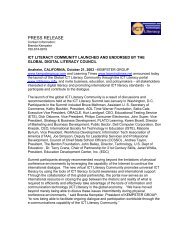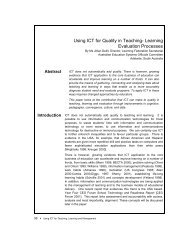Social Media - A guide for researchers - ICT Digital Literacy
Social Media - A guide for researchers - ICT Digital Literacy
Social Media - A guide for researchers - ICT Digital Literacy
You also want an ePaper? Increase the reach of your titles
YUMPU automatically turns print PDFs into web optimized ePapers that Google loves.
<strong>Social</strong> media:<br />
A <strong>guide</strong> <strong>for</strong> <strong>researchers</strong><br />
2. What are social media?<br />
This <strong>guide</strong> uses the term ‘social media’ to refer to Internet services where the online content is<br />
generated by the users of the service. Although there are other, largely synonymous terms <strong>for</strong> such<br />
services (Web 2.0, participatory media, etc), <strong>for</strong> consistency this <strong>guide</strong> will use the terms social media<br />
(to describe the phenomenon) or social tools (to describe the technologies). <strong>Social</strong> media rely on Webbased<br />
technologies to turn discrete, usually rather short, user contributions such as status updates or<br />
comments into an activity stream. Examining social media there<strong>for</strong>e requires us to think about how social<br />
tools facilitate the production and dissemination of in<strong>for</strong>mation, and how they enable people to discuss<br />
and consume this in<strong>for</strong>mation.<br />
We focus in this <strong>guide</strong> on how social media can be used by <strong>researchers</strong>. We examine a range of different<br />
tools and discuss how they might be employed. Throughout the <strong>guide</strong> we have also included quotations<br />
from interviews with ten <strong>researchers</strong> who are already using social media in their research. However,<br />
be<strong>for</strong>e we begin to look in detail at how you can use social media <strong>for</strong> research, it is important to gain an<br />
overview of what is meant by the term.<br />
What social tools are available?<br />
Even if you are not familiar with the term ‘social media’ it is likely that you have heard of, or even used,<br />
many of the social tools themselves. They can be divided into a number of categories and we describe<br />
1<br />
examples of many of them in this <strong>guide</strong>. To begin with, some commonly-used tools are mentioned<br />
below. There is a full glossary at the back of this <strong>guide</strong>, which you can use if these terms are unfamiliar.<br />
Communication: Blogging:<br />
Microblogging:<br />
Location:<br />
<strong>Social</strong> networking:<br />
Aggregators:<br />
Collaboration: Conferencing:<br />
Wikis:<br />
<strong>Social</strong> bookmarking:<br />
<strong>Social</strong> bibliography:<br />
<strong>Social</strong> news:<br />
<strong>Social</strong> documents:<br />
Project management:<br />
Multimedia: Photographs:<br />
Video:<br />
Live streaming:<br />
Presentation sharing:<br />
Virtual worlds:<br />
Blogger, LiveJournal, TypePad, WordPress<br />
Twitter, Yammer, Google Buzz<br />
Foursquare, Gowalla, Facebook Places<br />
Facebook, LinkedIn, MySpace<br />
Google Reader, Netvibes, Pageflakes, iGoogle<br />
Adobe Connect, GoToMeeting, Skype<br />
PBworks, Wetpaint, Wikia<br />
Delicious, Diigo, BibSonomy<br />
CiteULike, Mendeley<br />
Digg, Reddit, Newsvine<br />
Google Docs, Dropbox, Zoho<br />
Bamboo, Basecamp, Huddle<br />
Flickr, Picasa, SmugMug<br />
Viddler, Vimeo, YouTube<br />
Justin.tv, Livestream, Ustream<br />
Scribd, SlideShare, Sliderocket<br />
OpenSim, Second Life, World of Warcraft<br />
1. Adapted from http://en.wikipedia.org/wiki/<strong>Social</strong>_media<br />
7
















